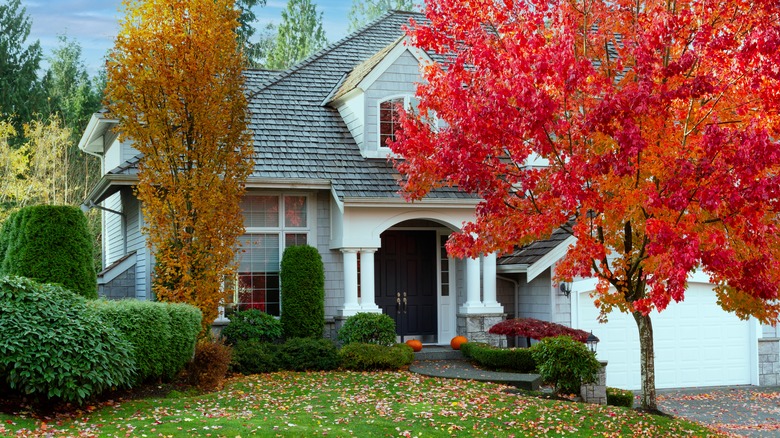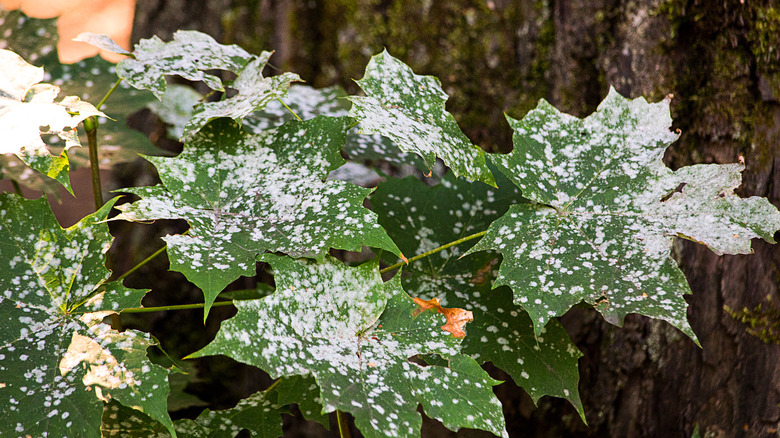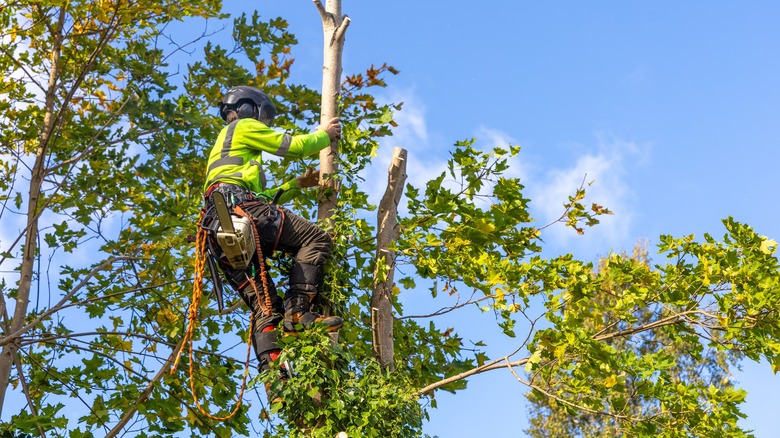How To Overcome The Biggest Drawback Of Planting An Autumn Blaze Maple Tree
The autumn blaze maple (Acer x freemanii 'Autumn Blaze') is a hybrid tree known for its rapid growth rate and stunning fall foliage, which provides a striking contrast against the landscape. Originating from a cross between the red maple (Acer rubrum) and silver maple (Acer saccharinum), this cultivar was introduced in the 1980s and has since become a popular choice for homeowners and landscapers seeking a fast-growing shade tree with vibrant autumn colors. While the autumn blaze maple possesses many desirable qualities, it does come with some drawbacks that homeowners should be aware of. One significant downside is the tree's tendency to require extensive canopy care and maintenance (more on this later).
Aside from being prized for its brilliant orange-red to scarlet autumn foliage, this maple tree features a well-defined, upright, oval-shaped canopy that provides excellent shade coverage. Its uniform shape makes it an attractive choice for various landscape settings, and it's adaptable to a wide range of soil types, including clay, loam, and sandy soils. Autumn blaze maple trees are also known for their resistance to many common diseases and pests that afflict other maple species. While no tree is entirely immune to diseases, this cultivar tends to be more resilient. It tolerates drought, cold, and urban conditions, including air pollution, compacted soil, and limited space. It can thrive in residential yards, parks, and along street sides, providing shade and beauty for everyone to enjoy.
Addressing the drawbacks of autumn blaze maple trees
The rapid growth of autumn blaze maple trees can lead to dense canopies that require regular pruning to maintain an attractive, balanced shape and prevent branch overcrowding. Without proper pruning, the dense tree canopy can reduce air circulation and increase the risk of fungal diseases and pest infestations. Its shallow root system also means it's prone to wind damage, particularly during storms.
Thinning out the tree's canopy involves selectively removing some branches to improve air circulation and light penetration. It helps reduce the risk of disease and pest problems while promoting healthy growth and development. Yearly pruning of dead or damaged branches during the dormant season (late winter or early spring) and selectively thinning out crowded areas can enhance the tree's overall appearance and longevity. Additionally, autumn blaze maple trees are known for having weak branch attachments, particularly in the early years of growth, making them susceptible to limb breakage under heavy snow or wind loads. Install dynamic support cables to help strengthen the tree structure and prevent branches from splitting or breaking. Consult with a certified arborist or tree care service for the proper installation and maintenance of support cables.
Planting, care, and maintenance tips
Despite the maintenance challenges they pose, autumn blaze maple trees thrive well with proper care and attention. When planting these trees, choose a location with well-drained soil and full to partial sunlight for optimal growth. Plant the tree root ball in a hole 4 to 5 times as wide and deep, but no deeper than the root flare. Plant it in well-draining soil that's consistently moist, especially during the tree's first few years of growth. Water deeply and infrequently to encourage deep-root development.
Apply a balanced fertilizer in the spring to promote healthy growth and foliage color. Install support cables to reinforce weak branch attachments and reduce the risk of limb breakage, especially during storms. You'll also want to monitor your tree for common pests, such as aphids, scale insects, leafhoppers, spider mites, and borers, and treat it as needed with the appropriate insecticides or horticultural oils. By following these planting, care, and maintenance tips, you can enjoy the beauty and shade provided by autumn blaze maple trees in your own yard for many years.


